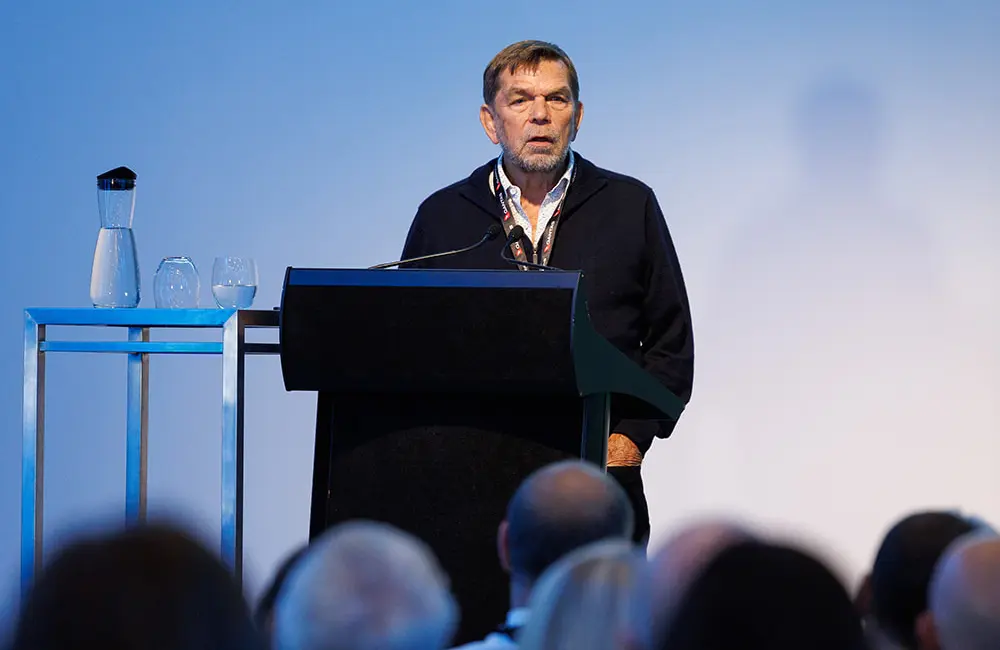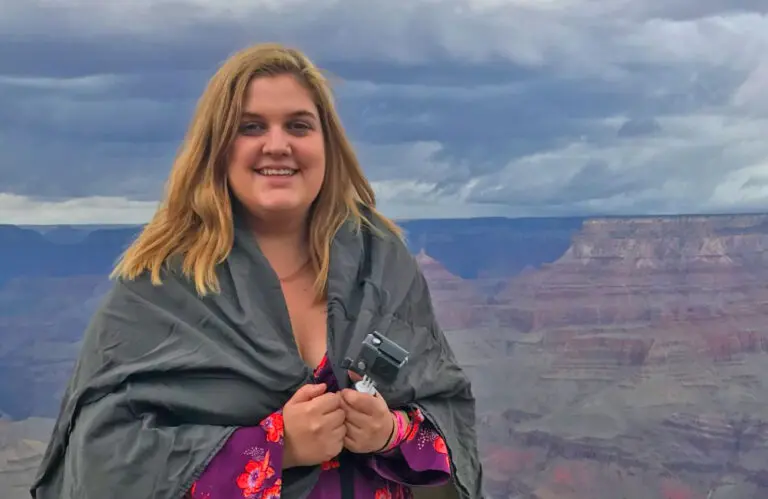ATIA Vice Chair and Flight Centre Travel Group CEO Graham ‘Skroo’ Turner took to the stage at the inaugural Beyond Borders Summit in Sydney last Friday to share his thoughts on how uniting the travel industry will be critical to ensuring its resilience and sustainability in the coming years.
For an industry titan like Skroo Turner, his often outspoken views always carry significant weight, especially given his track record of building the global Flight Centre Travel Group empire from Topdeck Travel’s humble beginnings in 1973.
This is the trailblazer whose 2001 book, Skroo the Rules, introduced a new business model for the travel industry. Flight Centre’s approach reshaped how businesses could operate, paving the way for innovation and success, though it was primarily carried out independently for many years.
Reflecting on his early days of disrupting the travel industry, Turner admitted, “We weren’t very popular in the beginning.” He was referring to Flight Centre’s launch in the 1980s in the UK with its bold “Discount airfare specialist” tagline.
At the time, banks and major corporations mainly controlled the travel agency sector. Flight Centre’s aggressive pricing strategy and accessibility didn’t align with the traditional model or its legacy players.
“Flight Centre came on board (to AFTA at the time) quite late because we were pretty independent. We wanted to be independent, and we were.” For that reason, Turner said, “We were somewhat ostracised in the industry in the 90s.”
Fast-forward to today, and Skroo Turner’s message and position have evolved considerably. “The pandemic changed everything,” he said. During COVID, we really saw the importance of working together. There’s no way any of us could have navigated those years alone.”
His comments reflected a broader recognition throughout the Beyond Borders event that collaboration between airlines, travel agents, operators, and government bodies is essential for facing future challenges—whether economic, environmental, or geopolitical.
Touching on the importance of preparing for the next Black Swan event, Turner said, “We don’t know what it will be—whether it’s another virus, a war, or something else entirely—but we need to be prepared. ATIA will play a key role in ensuring the industry can face whatever comes next.”
Turner also noted the importance of airlines joining forces with other parts of the travel ecosystem. “Airlines are absolutely critical to the travel industry in Australia and around the world,” he said. We need to work with them as partners, not competitors.”
Not shying away from critiquing how the industry and governments handled the COVID-19 pandemic, Turner quipped, “Most of you remember COVID-19—it was nearly five years ago now, but I think we all know how badly it was handled, particularly in Australia.” He pointed out that both the federal and state governments, especially in Victoria, fell short in their responses.
Turner emphasised that the travel industry’s voice was largely absent from the decision-making process during that time and said he was determined not to let that happen again. “We need to make sure our voice is heard next time. With ATIA, we can do that.”

Highlighting some of ATIAs new Project A30 initiatives launched at the event, and particularly its move to simplify and strengthen its brand identity by transitioning from ATAS to ATIA accreditation, Turner said, “It’s a great step.”
“ATAS has come a long way, and now it’s time to streamline things. We need to make sure accredited members are financially sound without too much bureaucracy getting in the way.” This shift toward efficiency and trust within the industry is something Turner believes will benefit all players, from independent agents to large operators like Flight Centre and Helloworld.
Beyond the organisational changes, Turner also addressed some of the industry’s more pressing issues, such as the skill shortages exacerbated by the pandemic. “One of our biggest challenges is getting the right people into the industry and keeping them there,” he said. ATIA’s new programs, including a ‘Gap Year Program’ for school leavers and the ‘Travel Career Kickstart Training Program,’ aim to attract new talent and provide them with the essential skills needed to thrive in the sector.
He also touched on the importance of addressing modern slavery within the supply chain, an issue that has become increasingly relevant in recent years. “ATIA’s new streamlined compliance solution is a big step forward,” he said, emphasising that businesses need to demonstrate full visibility of their supply chains, not just for ethical reasons but also to meet growing financial reporting requirements.
Closing on the theme of unity, Turner explicitly called on the industry’s major players to come together under ATIA’s banner. “We’ve got to work together, all of us—airlines, agents, operators. The more united we are, the stronger we’ll be. ATIA is the right body to represent us, and we need to ensure that it has the support it needs to be effective.”
“The days of going it alone are over. If we want to thrive, we need to work together.”
Read on for more details on ATIA’s Project A30 here.
The Beyond Borders Summit preceded a huge weekend for ATIA and the travel industry, with the National Travel Industry Awards (NTIA) gala taking place on Saturday evening. The official NTIA Finalists Party kicked off proceedings on Friday night, followed by Karryon’s own Glam Club event just prior to the awards night on Saturday afternoon at The W Hotel in Sydney.
Read on for all the NTIA 2024 winners here.
For all the NTIA paparazzi photos and more, head to Karryon’s Facebook page here.







